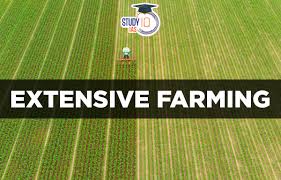Extensive Farming refers to a type of farming that uses expensive equipment, chemical fertilizers pesticides, and agriculture research. It is practiced in areas with large agriculture landmasses and low population densities. Extensive farming is a method of agriculture production that consumes less manpower, fertilizer, and money compared to the amount of land being farmed.
Key Features of Extensive Farming
- Low Yield – It emphasizes sustainability and self-sufficiency rather than high yield.
- Low Labor Intensity – Due to the large scale of operations, less labor per unit area is required.
- Lower use of Chemicals – Extensive Farming employs fewer fertilizers and pesticides, making it more ecologically friendly.
- Animal Grazing – Livestock farming is a common aspect of extensive farming.
- Larger Land Requirements – Extensive farming requires large tracts of land to be viable.
Advantages of Extensive Farming
- Lower Environmental Impact – With less chemical usage and a higher emphasis on natural processes, extensive farming is usually more eco – friendly.
- High Animal Welfare Standards – Extensive Farming practices often include free – range animal rearing which can lead to higher animal welfare standards.
- Greater Biodiversity – Extensive farms typically have greater biodiversity because they have a wider variety of plants and animals.
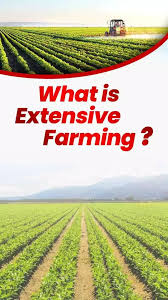
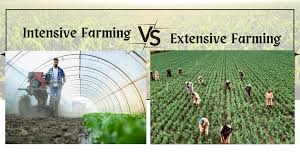
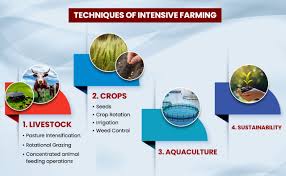
Disadvantages of Extensive Farming
- Lower Productivity – Extensive Farming tends to have lower yields per unit of land compared to intensive farming.
- Higher Land Requirements – Extensive Farming requires more land to produce the same amount of food as intensive farming.
- Dependence on Natural Conditions – Extensive Farming is more dependent on natural conditions, making it more vulnerable to weather and climate variations.
The Future of Farming
Given the pressing need to balance food production with environmental preservation. The future lies in the integration of intensive and extensive farming.
Precision Farming – Precision Farming could enable us to increase yield (as in intensive farming). Minimizing resource use and environmental impact is a benefit of extensive farming.
Regenerative Agriculture – This approach focuses on improving soil health, capturing carbon and maintaining a balanced ecosystem. This increase productivity while enhancing sustainability.
Vertical Farming – A form of intensive farming, vertical farming takes advantage of urban spaces to grow crops. This form of farming can achieve high yields with a smaller footprint.
Importance of a Farming Business Plan
A good and well – structured farming business plan is a must for a new or existing farmer. It provides a clear strategy and objectives and helps everyone involved in the operation to stay productive and focused. A good farming business plan involves research on the internal and external business environment, including competitors, suppliers & consumers.
Having a strong business plan also shows banks and other investors that you take your farming operation seriously. Need help with this? – Contact us now for professional help and assistance.
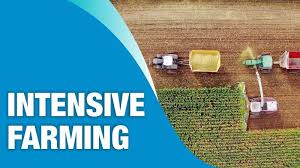
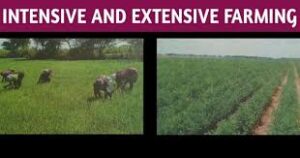
About Me

I am a small business consultant with 28 years banking and 23 years business experience. This also include 15 years experience working with farmers. Read More
Contact
Phone
Address
Website you Must Visit
Small Businesses and Agriculture play a vital role in building our economy, communities, and delivering the creativity that will move our country forward. The starting point to all of this is to develop a proper "Business Plan” that is necessary to show all interested parties – employees, investors, partners, and yourself – that you are committed to building your business. Creating your plan forces you to think it through and select strategies that will propel your growth.
Visit our website – www.premiumbusinessplans.co.za now for more details and professional help and Read More

